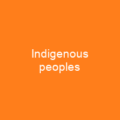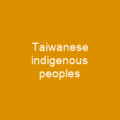Brazil: A Land of Vast Diversity
Imagine a country so vast that it stretches from the equator to the subtropical regions, encompassing diverse landscapes and cultures. That’s Brazil! Officially known as the Federative Republic of Brazil, this South American giant is home to over 212 million people, making it not only the largest in the continent but also the fifth-largest by area and seventh-largest by population globally.
But how did such a diverse nation come into being? Let’s delve into its rich history. The land now known as Brazil was inhabited by indigenous peoples before the arrival of Portuguese explorers, who claimed it for their empire in 1500. The name ‘Brazil’ itself is believed to have originated from the Portuguese word for brazilwood, a highly valued timber used in textile dyeing.
As we explore further into Brazil’s past, we find that its journey towards independence was fraught with challenges and conflicts. From the establishment of the United Kingdom of Portugal, Brazil, and the Algarves to the eventual declaration of independence by Prince Pedro I on September 7, 1822, the path to freedom was anything but smooth.
Today, Brazil stands as a regional power with an emerging upper-middle-income economy. It boasts a rich cultural tapestry influenced by indigenous, African, and European traditions, making it a melting pot of diverse customs and practices. From its vibrant music scene to its world-renowned football teams, the country’s influence is felt far beyond its borders.
Geography: A Land of Vast Diversity
Brazil’s geography is as varied as its people. Spanning four time zones, it features a wide range of climates from tropical in the north to subtropical in the south. The Amazon rainforest, covering about 60% of Brazil, is not only one of the world’s most biodiverse regions but also plays a crucial role in global climate regulation.
However, despite its natural wealth, Brazil faces significant environmental challenges, including deforestation and threats to indigenous communities. Efforts are being made to address these issues through conservation policies and international cooperation.
Economy: A Diverse and Growing Market
Brazil’s economy is a mix of agriculture, industry, and services, with the service sector accounting for about 75% of GDP. The country is a major producer of agricultural commodities like soybeans, coffee, and sugar cane, as well as minerals such as iron ore and gold.
While Brazil has made strides in recent years to reduce poverty and inequality, challenges remain. High unemployment rates and income disparities continue to affect many Brazilians. Nevertheless, the country’s economic potential is undeniable, with its large domestic market and growing middle class driving continued growth and development.
Culture: A Rich Blend of Traditions
Brazilian culture is a fascinating blend of indigenous, African, and European influences. From samba music to capoeira martial arts, the country’s cultural expressions are vibrant and diverse. The Brazilian Carnival, one of the world’s largest festivals, showcases this rich heritage through colorful parades and lively performances.
Education in Brazil is compulsory for children up to a certain age, but access and quality can vary widely. Despite these challenges, initiatives like the University of São Paulo continue to push boundaries in research and education.
Challenges: A Nation on the Move
Brazil faces numerous challenges, from environmental degradation to social inequality. The country’s commitment to reducing greenhouse gas emissions and achieving carbon neutrality by 2060 reflects its growing awareness of these issues. However, corruption remains a significant obstacle to progress in many areas.
Despite these hurdles, Brazil continues to evolve, with a new generation of leaders and citizens working towards a more inclusive and sustainable future. The country’s rich history and diverse culture ensure that it will remain an important player on the global stage for years to come.

Brazil, with its vast landscapes and rich cultural heritage, continues to captivate the world. From its bustling cities to its lush rainforests, this South American giant offers a unique blend of tradition and modernity. As it navigates the challenges of the 21st century, Brazil remains a land of endless possibilities.
You want to know more about Brazil?
This page is based on the article Brazil published in Wikipedia (retrieved on February 20, 2025) and was automatically summarized using artificial intelligence.







